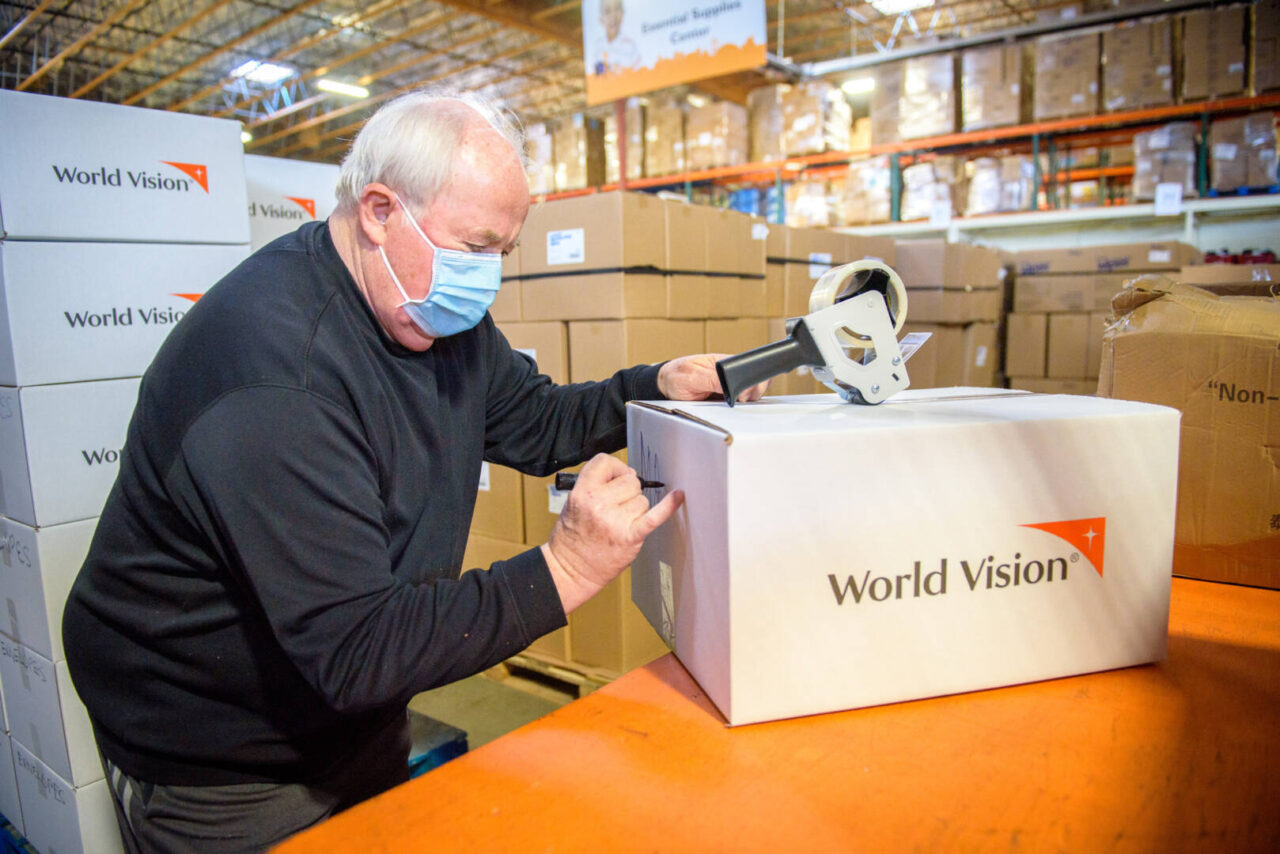To End Global Pandemic, We Must Protect the World’s Most Vulnerable, says World Vision
Media Contact :
March 10, 2021
Senior Public Relations Manager
[email protected]
m 404-735-0871
Media Contact :
March 10, 2021
Senior Public Relations Manager
[email protected]
m 404-735-0871

SEATTLE (March 10, 2021) — As we mark one year since COVID-19 was declared a global pandemic, Christian humanitarian organization World Vision says to truly end the global threat of COVID-19, we must reach the world’s most vulnerable with both relief and life-saving vaccines.
“Today, we remember the millions of precious lives lost to COVID-19 – and countless more families suffering the impacts of the pandemic. Yet, even as we mourn, we look ahead with hope to the many lives that will be saved with the rollout of the vaccine,” said Edgar Sandoval, President and CEO of World Vision U.S. “Now as we focus on getting the vaccine to as many people as possible here in the United States, we also must not forget people living in some of the poorest countries in the world, each precious in God’s sight. Unless we consider their well-being as important as our own, COVID-19 will remain a threat, here and everywhere.”
Within hours of the pandemic declaration, World Vision launched the largest global response in its 70-year history reaching more than 59 million people, including 26 million children with relief and virus prevention. World Vision partnered with more than 124,000 pastors and faith leaders, in more than 40 countries to disseminate accurate health information, activating the network used in the past to combat Ebola, HIV/AIDs and Zika. We helped communities slow the spread through providing handwashing stations and provided support to health systems by providing PPE and training to healthcare workers to care for the sick.
In the United States, we have distributed nearly three million fresh food boxes through the USDA Farmers to Families program, reached nearly 500,000 families with emergency food and essentials and provided over 2.5 million units of PPE to schools, healthcare workers and first responders.
“This incredible work could not have been done without our valuable church partners. The Church has been a force for good – living outside its four walls, and working hand-in-hand with their neighbors to distribute life-saving food, PPE, and other essentials that saved lives. Pastors and faith leaders will continue to play a critical role as the most trusted leaders in their communities. They are essential to vaccine acceptance and reaching the most vulnerable still suffering the impacts of this deadly pandemic,” said Sandoval.
While virus numbers in the U.S. continue to decrease, hunger and food insecurity is increasing worldwide at an alarming pace. The World Food Program estimates an additional 10,000 children will die of malnutrition each month, the number of people who are food insecure has doubled to more than 270 million people, and 30 million people are in Emergency (IPC4) levels of food insecurity in 36 countries.
Extreme poverty has risen for the first time in 22 years, and unemployment has increased dramatically. The World Bank predicted that COVID-19 will add as many as 150 million extreme poor in 2021, half of them children. Statistics from World Vision programs also show child marriage and violence against women and girls is on the rise, due to the aftershocks of the pandemic.
As we enter year two of the global pandemic, World Vision will focus on addressing these secondary impacts while also encouraging vaccine acceptance. This will include scaling up assistance to families facing hunger while also supporting restoration of livelihoods as a sustainable solution. We will also focus heavily on ensuring that communities are accurately informed on the nature and purpose of vaccines, community and faith leaders are equipped to support their constituencies, and public health decision makers understand vaccine acceptance barriers and the science of reducing vaccine hesitancy.
“The secondary impacts of the virus on the world’s poorest people – especially children – are deadly and long-lasting. As we fight to protect people from the virus, we must also protect them from the deadly aftershocks of the pandemic. That is where World Vision will be focused. We are fully committed to empowering people living on the margins to fulfill their God-given potential,” Sandoval said.
About World Vision:
World Vision is a Christian humanitarian organization conducting relief, development, and advocacy activities in its work with children, families, and their communities in nearly 100 countries to help them reach their full potential by tackling the causes of poverty and injustice. World Vision serves all people regardless of religion, race, ethnicity, or gender. For more information, please visit www.WorldVision.org/media-center/ or on Twitter @WorldVisionUSA.